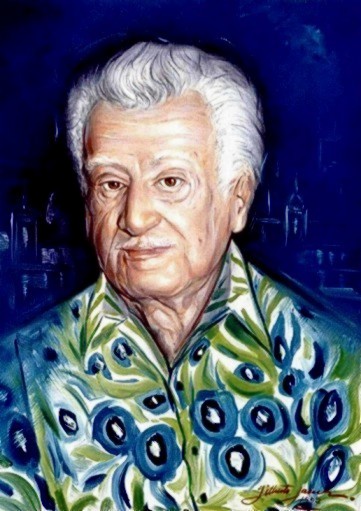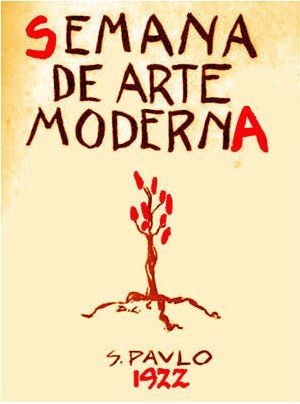The guitarist Carlé Costa was born in Uruguay in 1959, the year Villa-Lobos died. Growing up (in Argentina) as a classical guitarist, he must have learned Villa's music for guitar early. By today he has the Preludes and Etudes mastered, judging by this new disc, recorded in the Genezarethkirche in Berlin during two midnight sessions in August of 2011. We're extraordinarily blessed with great recordings of this music, and Costa adds to the riches with this CD. This isn't a routine run-through of a chunk of the CG canon, but something that comes across as deeply thought-out and organic.
Organic is the right word: Costa's CD is entitled "
Alma de uma terra" - "Soul of the earth", and he adds a tagline "with hope for the day we respect the soul of the earth." The connection between Villa-Lobos's music and the natural world is one that the composer made himself, many times. The landscape of Brazil is obvious throughout Villa-Lobos's music: in early pieces like
Amazonas, middle works like
Bachianas Brasileiras #4, and late music such as
Erosao. And while the guitar works don't have an explicit connection with nature - the Preludes are studies of Brazilian characters or "types", and the Etudes are technical exercises souped-up for concert presentation - this music feels like it
flows from two basic sources: the music of JS Bach and the soil and flora & fauna of Brazil.
All this is evident in Costa's playing. Perhaps the German recording location brings him to a more classical way of playing this music, without as much rubato as many guitarists use in this music. But it's controlled rather than overly severe. There is often a bit of swing to his playing, which is evident, for example, in the 5th Prelude, a picture of teenage Cariocas.
Costa plays the original 1928 score of the Etudes rather than the 1953 version which was heavily edited by Segovia. A number of other guitarists have recorded this version, most notably
David Leisner in 2000. The recent recording by
Frédéric Zigante includes both versions of Etudes #10 & 11, which show the biggest differences. The importance of this is much more than purely technical, though Segovia & Villa-Lobos got into heated arguments about fingering. Villa was pushing the envelope as far as what the guitarists of the day could actually play. In the mid- to late-1920s Villa-Lobos was at his absolute peak as a composer, and the music he wrote then (the Choros series especially, but also the magnificent
Rudepoema) surely sounded wild and dissonant to Segovia. The later version of the Etudes have some of their sharp edges rounded off; they're a bit manicured. Costa's Etudes are as close to the rain forest as they are to Bach's Well Tempered Clavier or the piano music of Chopin.
Though it may not have as wide a distribution as some CDs in this repertoire, I recommend this disc very highly. Carlé tells me that he'll soon have the disc on Amazon, but in the meantime, you can
email him to find out about purchasing the CD.
















































